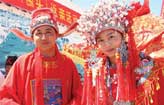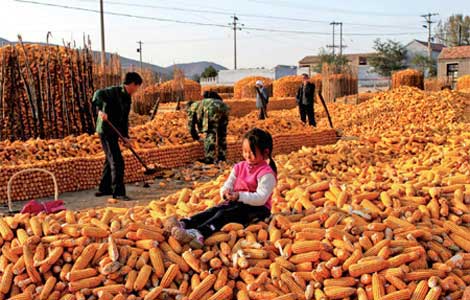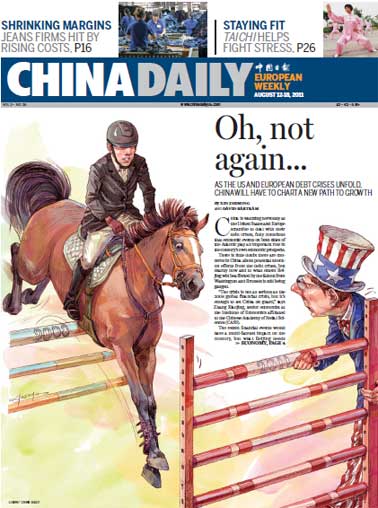Politics
Rising enmity haunts China-Japan relations
Updated: 2011-08-12 07:10
By Li Xiaokun (China Daily)
The positive attitude that many Chinese adopted toward Japan after the country was liberated when former prime minister Junichiro Koizumi stepped down in 2006 no longer exists. "Now the turning point appears," Sun said.
Koizumi ruined Japan's ties with China by repeatedly visiting the Yasukuni Shrine, which honors Japan's war dead including Class-A war criminals.
Among the factors that make ordinary Japanese dislike China, the Chinese government's handling of the vessel collision incident in 2010 received the most votes, with 64.6 percent.
The most popular answer from Japanese elites, in contrast, was that "China is self-centered" on resources and energy issues (71.9 percent).
Yasushi Kudo, head of Genron NPO, a Japanese think tank similar to the Council on Foreign Relations in the US, said Japanese people used to dislike China for historical reasons, then for food safety and now for territorial issues. "Though there are more people holding a negative attitude, the reasons have changed."
He also said it was a pity that - although the Chinese government sent massive disaster relief materials and donations to Japan soon after the quake hit - many Japanese did not learn much about the aid efforts because most ordinary Japanese have no direct contact with China and instead learn about it through the media.
According to the poll, 54.5 percent of ordinary Chinese hold a positive attitude of current relations between Beijing and Tokyo, while the corresponding figure for intellectuals is 22.6 percent.
Forty-two percent of students and teachers declined to comment or said there were unsure, showing that a large group of well-educated people have taken a wait-and-see attitude toward the key relations.
The Japanese are much more negative when evaluating the relationship, with only 8.8 percent of civilians and 18.8 percent of the elites saying that it is good or relatively good.
The territory issue is the most popular reason for damaged relations in every group on both sides.
However, the downturn did not stop people in every group from attaching high importance to each other, as they did in polls in the past several years.
Intellectuals put more importance on each other, with 88.6 percent of Chinese students and teachers and 98 percent of Japanese elites supporting the statement.
More than half of both the two Japanese groups and ordinary Chinese people say the relations are as important as those of their own country's relations with the United States, while 45.5 percent of Chinese intellectuals believe China's ties with the US are more important.
On the prospect of China-Japan relations, a larger amount of ordinary Chinese people are optimistic (44.7 percent), while one-third of the intellectuals are positive and another one-third say they have to wait to observe.
The mostly popular answer among ordinary Japanese people on the question is that the relationship will remain the same as it did in the past year (33.2 percent), while the elites are more positive with 36.4 percent saying it will improve.
Li Wei, chief of the Institute for Japanese Studies under the Chinese Academy of Social Sciences, said the Naoto Kan administration should shoulder most of the responsibility for frayed China-Japan relations.
"The Japanese government has bet too much on the US and deliberately revealed information hampering its relations with China."
The survey is affiliated with the Beijing-Tokyo Forum, which will be held from August 20 to 22 in China's capital.
The forum, co-sponsored by China Daily and Genron NPO, has been held alternately in Beijing and Tokyo since 2005. The annual gathering is one of the most significant platforms for public diplomacy between the two countries.
It will see nearly 300 leaders from the political, business, academic and media fields, including a slew of former ministers from both sides, take part in discussions focusing on "the Future of Asia and China-Japan Cooperation in Economic Reshaping".

E-paper

My Chinese Valentine
Local businesses are cashing in on a traditional love story involving a cow herder and a goddess
Outdoor success
Lifting the veil
Allure of mystery
Specials

Star journalist leaves legacy
Li Xing, China Daily's assistant editor-in-chief and veteran columnist, died of a cerebral hemorrhage on Aug 7 in Washington DC, US.

Sowing the seeds of doubt
The presence in China of multinationals such as Monsanto and Pioneer is sparking controversy

Lifting the veil
Beijing's Palace Museum, also known as the Forbidden City, is steeped in history, dreams and tears, which are perfectly reflected in design.
